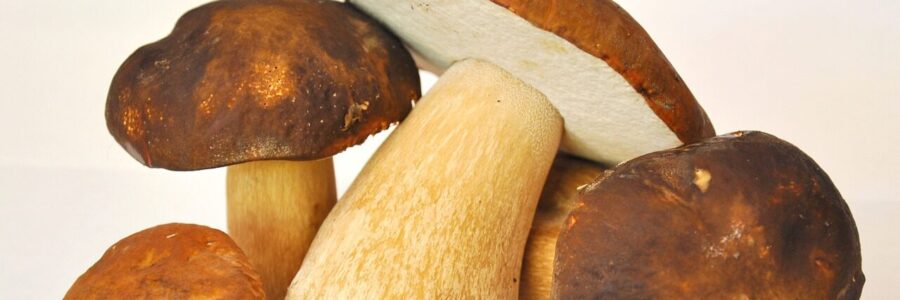Mushrooms certainly have some haters out there, although we don’t understand why! But for those of us who love them, there’s even more to love when you understand their health benefits.
History of Medicinal Mushrooms
Mushrooms may be one of the very oldest forms of traditional medicine. Records show they were used in traditional Chinese medicine in 330 BC. They have a long history in the western world as well, as the ancient Greek physician Hippocrates referenced and used a species of mushroom to treat wounds and reduce inflammation. Scientists even found a medicinal species of mushroom in the bag of a man frozen in ice in 3300 BC.
Immunity Boosters
Mushrooms and mushroom preparations are most often used in natural medicine to boost the immune system. There is research-based evidence to support that mushrooms increase our beneficial immune response, and may even be helpful as an adjunct therapy to treat cancer. Certain species may work as immunomodulators that help balance autoimmunity or target tumors. That’s also one reason why many TCM (traditional Chinese medicine) teas and powders also incorporate certain varieties of mushrooms.
Mushrooms Can Produce Vitamin D
Another way that mushrooms boost our immune system and bring us even more health benefits is that they can produce and store vitamin D. Mushrooms, much like our skin, produce vitamin D when exposed to UV light – either a UV lamp or sunshine. Not all mushrooms are exposed to UV light, so only the ones that are – referred to as vitamin D “enhanced” mushrooms – will have nutritionally significant amounts.
Vitamin D deficiency is pervasive in both the United States and Europe, especially in northern latitudes where there is less sunshine. Some estimates say that 40% of the US population may be vitamin D deficient. That’s bad news, since vitamin D deficiency is linked to a higher rate of chronic disease, cancer, and cardiovascular disease.
Mushrooms produce vitamin D2 rather than the D3 that’s found in animal products. Research shows that the vitamin D2 in mushrooms is just as effective and bioavailable as vitamin D2 supplements. (Although vitamin D3 is preferred over D2 by nutritionists as it is more effective at raising our blood levels of vitamin D for a longer period of time, both D2 and D3 can treat a nutritional deficiency in vitamin D.) As one of the few plant-based sources of vitamin D2 enhanced mushrooms offer a good option for vegans.
Let Your Mushrooms Sunbathe
Mushrooms actually thrive and grow in dark, humid places. Most white mushrooms you buy at the grocery store had very little light exposure during their harvesting and transport, so they don’t have much vitamin D.
However, you can enhance your mushrooms yourself when you bring them home. Before adding to your recipe or salad, first, wash and dry your mushrooms, then slice them and place them on a tray and set them in the sunlight for 15 -120 minutes. Slicing them first (if that’s how you’ll use them in your recipe) exposes more surface area to the sun – meaning more vitamin D. If you are using Shitake mushrooms, the highest absorption happens in their “gills,” so turn them upside down to expose them to the sun. Oyster and enoki mushrooms produce the most vitamin D in the sun, followed by shitake and portobellos.
If you keep dried mushrooms in your pantry, you can look for sun-dried versions, which usually contain and preserve the vitamin D they produced while drying. Both time in storage and cooking can deplete the amount of vitamin D in mushrooms.
Let Food be Your Medicine
Mushrooms are another example of how nature gives us easy access to so much healing power. There are many tasty varieties beyond the basic white button mushroom that are now easily available in any produce section. Google some new recipes for shitake, maitake, enoki oyster, or portobello mushrooms and discover countless ways to add them to soups, salads, stir-fries and more.
But don’t forget to give them a little sunshine first!
Want to Learn About Skin Health?
Click HERE to get the Amethyst Holistic Skin Solutions Newsletter. You’ll receive interesting information about skin health via articles, before/after pictures, case studies of Amethyst patients, videos, interviews and more. Feel free to share this article with someone who you think may benefit.
About the Author
Olivia Hsu Friedman, LAc, Dipl.OM, DACM, Cert. TCMDerm, is the owner of Amethyst Holistic Skin Solutions and treats Acne, Eczema, Psoriasis, and TSW. Olivia treats patients via video conferencing using only herbal medicine. Olivia is Chair of the Board of Directors of the American Society of Acupuncturists, serves on the Advisory Board of LearnSkin, and is a faculty member of the Chicago Integrative Eczema Group sponsored by the National Eczema Association.



